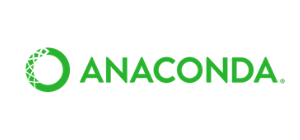

DS & ML – Lahore
Get Applied Training from Top-notch Data Science Experts!In this training, you will learn about machine learning algorithms and its applications. Further you will also be guided how to use the machine learning algorithms in Python. This course will cover data sets from multiple domains and how to apply Machine Learning algorithms on the available data, how to get value out of Machine Learning algorithms, and how to present the output of those algorithms.
By the end of this training, you will have enough knowledge and hands-on expertise in Python to use and apply them in the real world around you. Also, you will be able to get prepared for certifications of Data Camp and Cognitive AI.


Schedule
Starting
4th June, 2022
Duration & Timing
8 Weeks
Saturdays (10AM-6PM)
Language
Urdu / Hindi
Remaining
Limited Seats Available!
Pinned Location for Training
Management House, 95 J/1, Johar Town, Lahore
(Click above for location)
Training Mode
Onsite
Meet the Instructors!
Meet the trainers of this course who are Data Science Experts!
Course Outline
Week 1
| Basics of Data Science Flow |
| Anaconda Installation |
| Intro to Jupyter Notebook |
| Intro to Python |
| Python Objects & Data Structure |
| Subsetting (Strings, Lists, Dictionaries) |
| Python Comparison Operators |
| Python Statements |
| Methods & Functions |
| Importing Data in Python |
| NumPy & Pandas Basics in Python |
| Subsetting Dataframes in Pandas |
| Data Aggregation using Group By, Pivot and Melt |
| Hands-On Assignment of Python |
Week 2
| Interactive Discussions on Last Weeks Assignments |
| Types of Variables |
| Data Visualizations (Scatter plot, Histogram, Bar plots, Line plots, Heat maps) |
| Data Centricity (Mean, Modes, Median, STD, Variance, Interquantile Range). |
| Box plot |
| Data Transformation (Log, Natural Log, Min Max ) |
| Data Cleaning in Python |
| Visualization on Matplotlib |
| Visualization on Seaborn |
| Exploratory Data Analysis of Titanic dataset |
| Feature Engineering |
| Techniques of Filling Missing values in EDA |
| Correlation Matrix |
| Hands-on Assignment of EDA |
Week 3
| Interactive Discussions on Last Weeks Assignments |
| What is Probability. |
| Conditional Probability (Disjoint Events + General Addition Rule). |
| Dependence vs Independence |
| Probability Trees & Bayesian Inference with their examples. |
| Machine Learning Basics |
| Machine Learning Playground |
| Supervised Learning. |
| Train Test Splitting |
| Overfitting vs Underfitting |
| Cross Validation using K-folds |
| Linear Regression |
| Gradient Descent, Ordinary Least Squares |
| Project-1 Assigned to Students |
Week 4
| Interactive Discussions on Project |
| Multivariate Regression |
| Residual Plots, R square, Adjusted R Square |
| Polynomial Regression |
| Model Complexity, Model Selection |
| Lasso Regularization |
| Ridge Regularization |
| Classification |
| Logistic Regression. |
| Confusion Matrix. |
| True Positive, True Negative, False Positive , False Negative. |
| Precision, Accuracy, Recall, F Measure. |
| ROC Curve, AUC, TPR, FPR |
| Project-2 Assigned to Students |
Week 5
| Interactive Discussions on Project |
| Decision Trees. |
| Information Gain, Gini Index, Chi Square |
| Random Forest. |
| Grid Search CV of Random Forest Hyper-parameters |
| What is Boosting |
| What is Bagging |
| AdaBoost on Python |
| Multi-Classification and Analyzing its Confusion Matrix |
| Unsupervised Learning |
| Clustering |
| K-Means algorithm |
| Elbow Analysis, Internal Indexes, Silhouette Score |
| Project-3 Assigned to Students |
Week 6
| Interactive Discussions on Project |
| External Indexes, Adjusted Rand Index |
| Cluster Profiling using Radar Chart |
| Feature Scaling |
| DBSCAN Algorithm |
| Cluster Validation using DBCV |
| Hierarchical clustering |
| Average vs Complete vs Ward linkage |
| Dendrogram Creation and Reading clusters |
| External Indexes, Adjusted Rand Index |
| Hierarchical clustering Use Cases |
| Association Rules |
| Apriori Algorithm |
| Support, Confidence, Lift, Leverage, Conviction |
Week 7
| Interactive Discussions on Project |
| Visualizing Association Rules |
| Network Graph Theory |
| Social Network Analysis by Network Graph |
| Dimensionality Reduction Concept |
| Principal Component Analysis (PCA) |
| Principal Vectors/Components |
| Composite Features |
| Maximal Variance |
| Info Loss and Principal Component Analysis |
| Image Classification using PCA |
| Model Deployment Basics |
| Flask App Introduction |
| Model Deployment on Flask App |
Week 8
| Data Science Test |
| Project & Presentation |
| Self learning Path Guidance |
Tools
Pricing
‘Payment in Installments’ available after confirming enrollment. Online Banking details shall be shared via our representatives after you reserve your seat
- Individual Pricing
-
-
PKR 30,000 Per Person
- Total Charges for the Training
-
- Group of 2
-
-
PKR 27,900 Per Person
- 7% Off for Group of 2
-
- Group of 3
-
-
PKR 27,000 Per Person
- 10% Off for Group of 3
-
- Group of 4 or more
-
-
PKR 25,500 Per Person
- 15% Off for Group of 4 or more
-
Reserve your Seat
You can reserve your seat by filling the form below
Frequently Asked Questions
Who should attend the course?
Graduate or Masters Students with Statistics, CS or Mathematics background who want to start their career in the Data Science domain
People who are working in the BI domain and want to advance their career in the field of Data Science
Executive who want to build a Data Science department in their start-ups/organizations
What is the timing of the course?
Duration: 8 weeks (Saturdays Only)
Timings: 10AM – 6PM
Who is the Instructor?
How much hands-on will be performed in this course?
Since our courses are led by Industry Experts so it is made sure that content covered in course is designed with hand on knowledge of more than 70-75 % along with supporting theory.
What are the PC requirements?
For Data Science Professional course, you need to have a PC with minimum 4GB RAM.
What if I miss any of the lectures?
Don’t worry! We have got you covered. You shall be shared recorded lectures after each session, in case you want to revise your concepts or miss the lecture due to some personal or professional commitment.
How will this training ensure hands-on practice?
For executing the practical’s included in the Data Science Training, you will set-up tool on your machine. The installation manual for tool prep will be provided to help you install and set-up the required environment.
What sort of projects will be part of this Applied Training?
This Certification Training course includes multiple real-time, industry-based projects, which will hone your skills as per current industry standards and prepare you for the future career needs.
Will I get a certificate after this course?
Yes, you will be awarded with a course completion certificate by Dice Analytics. We also keenly conduct an annual convocation for the appreciation and recognition of our students.
What is the location for the training in Lahore?
Management House, 95 J/1, Johar Town, Lahore
(Click above for location)




